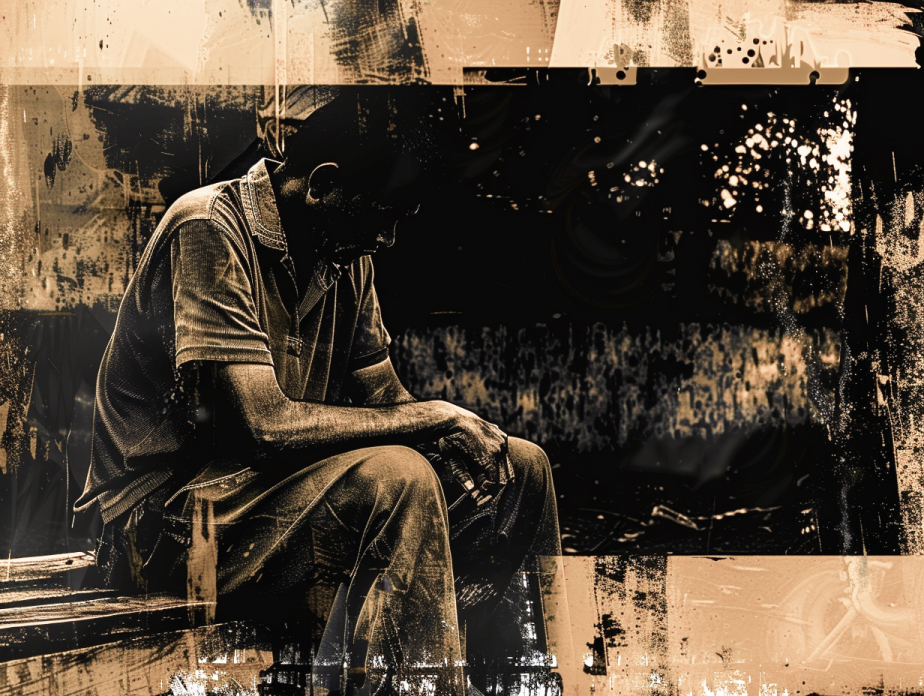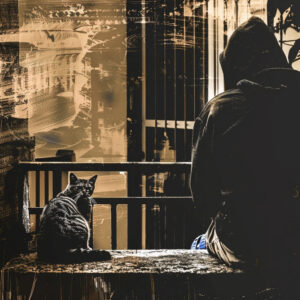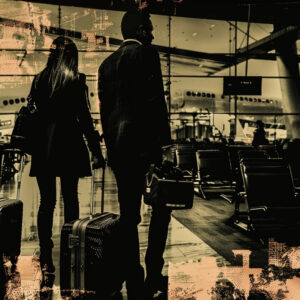They say: The farther you are from humans, the more the bonds of love increase…

In the series “Al Nadam”, it would have been possible for the novel “The Threshold of Pain” to read a different reading if its cover had not been appended with an introductory phrase: “A novel in five scenes and many views,” which means that the “Palestinian” author chose to present the reader a novel, therefore it is subject to all criteria of narrative reading. Since the first pages, Youssef assumes the narrator’s status, speaking of his signature on Statement of the 99, which was issued in 2000 “in order to avoid catastrophic situations that may occur in the country sooner or later”. Thus, he is the only Palestinian to sign a statement by Syrian intellectuals, using the story as an entry point to talk about duality which the Palestinian-Syrian person has been feeling since the beginning of 2011, thus emphasizing his Syrian nationalism and his entitlement to narrate his observations during five and a half years of the war. After that, scenes follow, distributed over the dates of each scene without a chronological sequence, but they are limited to a range extending from February 2014 to February 2016.
In the series “Al Nadam”, the ego was one of the well-known forms in the narrative texture, where the writer assumes the character of the narrator, he is the hero of the work. It is the most appropriate formula for writing a biography, with the difference that the novelist may assume the character of a hero who does not resemble him. Making the reader delusional that the novelist is the one who makes and narrates events, thus creating confusion that increases the pleasure of reading by satisfying the instinct of eavesdropping on the writer’s personal life, while the autobiographical writer in “Al Nadam”, is far from this literary game, content with telling the reader that he records facts that occurred for the sake of documentation. Between these two theories, the narrator of “The Threshold of Pain” gets lost, while the cover indicates that what we have in front of us is a novel, Youssef chooses to record diaries, observations and obsessions in the ego form, away from any narrative structure, which makes the text open to chaos in the reader’s mind, that reading the last section will not be arranged.
Where have we come, O God, what have we sowed to reap all this ruin?
You will not reap wheat if you have planted barley
You will not reap barley if you have planted thorns
Even young children know this.
So, we have to change the question form
Since the reap is all these disasters, what is the nature of the evils that we sow?
We often boast that Damascus is the oldest inhabited capital in this world, it is indeed, but this talk carries a great insult to us.. We are the oldest… So!!
We are the ones with the greatest experience. This is what logic says, the logic of life, the logic of history. Experiences are cumulative.
What have we accumulated?!
Hundreds of years, even thousands, as we build the most beautiful homes on earth, suddenly, in only half a century, we find ourselves surrounded by a random agenda, and the worst of all is that we are still singing to the damascene jasmine.
More than three hundred million people live in homes unfit for human consumption
The view of these houses is harmful even to the sight, it is crude and injures the eye
How did these slums grow? Who authorized its construction in the first place?!
Dozens of flawed questions, all before the disaster. As the disaster has occurred, the issue is no longer in the fault alone, the issue has first become in the evil that inhabited us..!
“
“Our land is governed by four pillars: fire, air, water, and earth. These pillars have been known since the dawn of life, even before Cain killed his brother Abel.
As the crime has occurred, humanity has become in need of new pillars, the most important of which are: ethics”.
شاهد مسلسل الندم
[ytp_playlist source=”PL4SKAxBjuOctsS1EVIqIpj5kx-F5RUhrB”]


